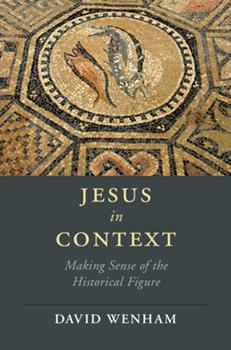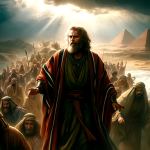Q. As time has gone on, I have found the translation as kingdom for malkuta/baseleia less and less plausible and helpful. The English word always conveys a place, whereas often the word seems to refer to an activity, on Jesus’ lips the final divine saving activity at last breaking into human history, particularly the history of God’s people. I don’t find the term ‘reign’ which is more static as helpful as ‘saving activity’ because the term is not talking about the ongoing sovereign reign of God. For this reason I’ve preferred the term dominion, because in English it can have both a verbal aspect (a king can take dominion over some people) and a noun aspect ( one can enter, obtain, inherit a dominion which is a place). In sum, when Jesus and also Paul refer to entering, obtaining, inheriting the dominion they are referring to something future, when the dominion comes on earth as it is in heaven, but when the subject is the divine saving activity it refers to something happening again and again in the present— happening to people who are being saved. So the dominion is in one sense ‘already’ here and in another sense ‘not yet’ come, hence the Lord’s Prayer. This of course implies that we live at a time when God’s will is often not done on earth, indeed quite the opposite. Paul would not have to talk about God working all things together for good for those who love him, if everything that was happening was already good and reflected the will of God. Does this make sense? How would you respond?
A. I am glad to meet another translation or paraphrase for malkuta/baseleia! Dick France entitled a book Divine Government, and I quite like that. Jesus saw himself as bringing an end to the devil’s hijacked and evil rule of the world (John 14:30), and restoring God’s government. Tom Wright entitled a book The Victory of God, and that has a positive dynamic feel. I went for ‘the revolution of God’, again because of the dynamism (contrast static or simply constitutional ideas of a monarchy) and because ‘the revolution’ is something you can join and that has a present and a future aspect. Your ‘dominion’ is another real contender, though I wonder if you and I both lose something in that neither the abstract term ‘dominion’ nor especially ‘revolution’ suggests a personal king, contrast the Psalms that say ‘Yahweh reigns’ (e.g. 97). Jesus is God’s king, indeed embodies God coming as king.
Q. In his recent book History and Eschatology Tom Wright chronicles how the Enlightenment, though in some ways helpful in getting the West beyond some aspect of the obscurantism of the Medieval period, did us no favors in setting up binaries like the natural vs. the supernatural, or miracles vs. mundane activities readily explained by empirical science, or even sacred vs. secular realms of human existence. I think he is absolutely right about this, and of course the NT never uses a term like miracle— Jesus’ special deeds are called mighty or powerful works or signs in the 4th Gospel especially. The question is raised as to what sense it makes to call miracles violations of the natural laws, which God in turn set up, the same God credited with miracles. Do you think it is possible that we could discuss the mighty works of the NT without resorting to Enlightenment categories and could assess their historical authenticity without such pigeon holes? I was reading a work by the philosopher Thomas V. Morris, and he suggested that we think of ‘miracles’ as things that go beyond what we know of natural laws (which of course is not exhaustive knowledge anyway) rather than going against them. Do you find this a helpful distinction?
A. Yes, I do see that as helpful, though I am no philosopher. I am in regular discussion with a friend who is a disciple of Richard Dawkins, the sceptical Oxford scientist, and he wants to explain absolutely everything in terms of natural causality. That sort of reductionism is not persuasive biblically or experientially. On the other hand, the Bible, though pre-modern-science, does know that there are ordinary and extraordinary events and acts of God: people were astonished at Jesus’ powerful deeds and asked: what is this? Even his opponents commenting on his exorcisms described them as the work of the ‘prince’ of demons. And as for his resurrection, people had doubts. It was virtually unbelievable, and John’s description of Thomas’ demand for what we would call empirical evidence is explicitly linked by John to the purpose of his writing of his gospel. It was the extra-ordinary things about Jesus that made him such persuasively good news in the first century. A book that I enjoyed reading recently is the collection of essays Raised on the Third Day, edited by David Beck and Michael Licona.













